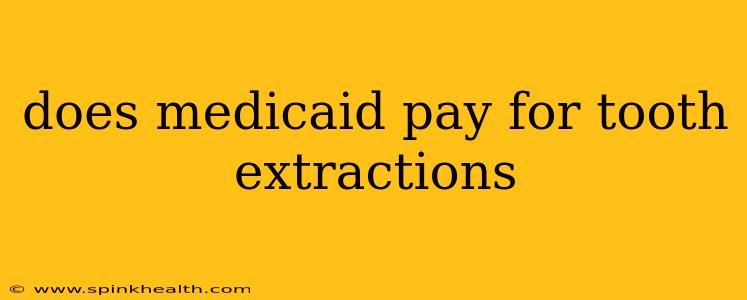Does Medicaid Pay for Tooth Extractions? A Comprehensive Guide
The gnawing pain in your tooth is relentless, and the dentist has recommended an extraction. But the cost is daunting. You wonder, "Does Medicaid pay for tooth extractions?" The answer, thankfully, is more nuanced than a simple yes or no. Let's unravel the complexities and explore what you need to know.
My name is Sarah, and I've spent years navigating the healthcare system, helping individuals understand their coverage options. This firsthand experience allows me to provide clear, accurate information about Medicaid and dental care.
The Short Answer: While Medicaid can cover tooth extractions, it's not guaranteed. Coverage varies significantly depending on your state, your specific Medicaid plan, and the necessity of the extraction.
Let's delve into the specifics:
What Factors Influence Medicaid Coverage for Tooth Extractions?
Several critical factors determine whether your Medicaid plan will cover the cost of a tooth extraction:
-
State Variations: Medicaid is a jointly funded federal and state program. Each state administers its own Medicaid program, leading to significant variations in coverage. Some states offer comprehensive dental coverage for adults and children, including extractions. Others have more limited coverage, perhaps only covering extractions deemed medically necessary to address an immediate health threat.
-
Medicaid Plan: Even within a state, different Medicaid plans might have different levels of dental coverage. Some plans might offer more extensive benefits than others, impacting whether they cover extractions. It's vital to understand the specific details of your own plan.
-
Medical Necessity: This is a crucial aspect. Medicaid is designed to cover medically necessary procedures. If your dentist determines the extraction is necessary to prevent a more severe health problem (like an infection spreading to the bloodstream), Medicaid is more likely to approve it. However, if the extraction is deemed solely for cosmetic reasons or general dental improvement, the chances of coverage decrease significantly.
-
Participating Providers: Not all dentists participate in the Medicaid network. Choosing a dentist who is part of your state's Medicaid program is crucial for ensuring coverage. If you go to an out-of-network dentist, you'll likely bear a considerable portion of the cost yourself.
What if Medicaid Doesn't Fully Cover the Extraction?
Even if your Medicaid plan covers extractions, it might not cover the entire cost. You might be responsible for copays, deductibles, or coinsurance. Understanding your plan's specifics is essential to avoid unexpected bills.
How Can I Find Out if My Medicaid Plan Covers Tooth Extractions?
The best way to determine your coverage is to contact your state's Medicaid office directly or check your Medicaid plan's detailed benefits document online. You can also contact your dentist's office – they can often help clarify coverage based on their experience with Medicaid patients.
What are My Options if Medicaid Doesn't Cover the Extraction?
If Medicaid doesn't cover the extraction, you have several options:
-
Negotiate Payment Plans: Talk to your dentist about establishing a payment plan to make the extraction more manageable financially.
-
Explore Dental Discount Plans: These plans offer discounts on dental procedures, potentially reducing the overall cost.
-
Seek Assistance from Local Charities: Some charitable organizations provide dental care assistance to low-income individuals.
-
Apply for Other Financial Aid Programs: Explore other government assistance programs or local resources to assist with medical expenses.
What about emergency tooth extractions?
Emergency tooth extractions, often necessary to address severe pain or infection, are generally given higher priority for Medicaid coverage. If you’re facing a dental emergency, seek immediate medical attention and explicitly explain the urgent nature of the situation to your provider and the Medicaid office.
Navigating Medicaid coverage can be confusing, but understanding the factors involved empowers you to take control of your oral health. Remember, proactive communication with your dentist and the Medicaid office is key to securing the necessary care while minimizing out-of-pocket expenses.

